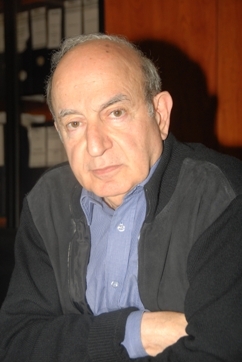
Since its establishment, SCB has carried out various macro-economic and sector studies in addition to conducting numerous feasibility and market assignments. Macro-economic studies covered such issues as investment and export promotion, fiscal and monetary policies, banking reform, education, manpower development, governance and institution building. Sector studies covered industry, agriculture, energy, banking, insurance and health. Feasibility studies were mainly for projects in manufacturing, finance, tourism and commerce, agro and metals industries. Market studies and research were of a quantitative and qualitative nature including surveys (via telephone, mail, and web), face-to-face interviews, focus groups and in-depth interviews. SCB also offers generalized and customized corporate training in such subjects as strategic leadership, marketing strategies, creative selling and team building.
SCB was also a partner with DFC Barcelona in executing the European Investment Bank Euro 40 million line of credit to the Syrian Government to finance SME's in Syria, and a partner with Arcadis Netherlands in executing the EU funded Euro 21 million grant to support the Institutional and Sector Modernization Facility (ISMF) in Syria.
The SCB team currently consists of 8 full-time staff (down from 20 before the crisis) with a set of multi-disciplinary skills and qualifications. It also has a network of local and foreign associate consultants and affiliates.
Founder's Profile
Nabil Sukkar, holds a Ph.D. in Economics from Indiana University, U.S.A. (1970). Between 1970 and 1981 he worked at the World Bank in Washington D.C., as a Macro-Economist in the West Africa Region, Financial Analyst in the South Asia Region, and as Senior Projects Economist in the Middle East Region. Between 1981 and 1985 he became an investment advisor to a Gulf investment group and in 1986, he set up a private consulting business in London, Middle East Development Consultants (MEDEC). Between 1987 and 1990 he conducted a major study on the Syrian economy assisted in the first six months, by a team of international consultants. The study, which was in six volumes, contained proposals for the stabilization, restructuring and marketization of the Syrian economy and a critical appraisal of its main economic sectors (agriculture, industry, public enterprises, oil & gas, tourism, banking, housing, and construction). Upon completion of the study, he stayed in Syria to set up the Syrian Consulting Bureau for Development and Investment.
In late 1990, Dr. Sukkar participated in a World Bank study conducted in Washington D.C. for the formulation of an emergency, relief and rehabilitation program for “Kuwait After Liberation”, and in 1995 he conducted a study for UNDP- Syria on tasks that require UN agencies assistance following possible evacuation of the Golan Heights. Also, in late 2013 and early 2014, he prepared two papers for Carnegie Endowment for international Peace on the Syrian crisis, one titled “Syria: Priorities for Decentralization in Immediate Post Conflict and Beyond”, and the other titled “Sequencing of Economic Reconstruction in Post Conflict Syria”.
Dr. Sukkar is an advisor to the Board of Directors of Banque Bemo Saudi Fransi, and a Board member of the ICT Incubator of Syria and of The Syrian Business Council. He was formerly a member of the Board of Directors of the Arab Finance Corporation in Lebanon, Bank Al-Sharq in Syria and the Syrian Economic Association.